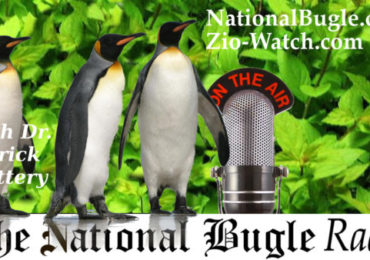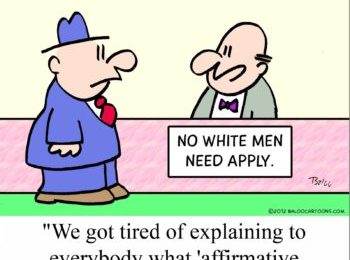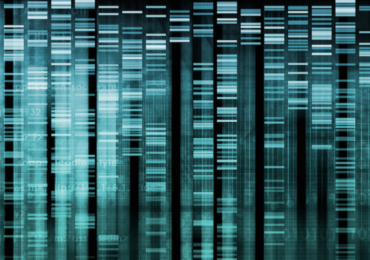 By Professor Kevin MacDonald. Stephen Jay Gould is definitely high on the list of ethnically motivated pseudoscientists that populate The Culture of Critique. In reading over the section on Gould from Chapter 2 (see pp. 30-37), I was struck by how many evolutionary biologists viewed Gould as a charlatan and were willing to say so in public.
By Professor Kevin MacDonald. Stephen Jay Gould is definitely high on the list of ethnically motivated pseudoscientists that populate The Culture of Critique. In reading over the section on Gould from Chapter 2 (see pp. 30-37), I was struck by how many evolutionary biologists viewed Gould as a charlatan and were willing to say so in public.
John Maynard Smith’s comment gets it exactly right: Gould “has come to be seen by non-biologists as the pre-eminent evolutionary theorist.
In contrast, the evolutionary biologists with whom I have discussed his work tend to see him as a man whose ideas are so confused as to be hardly worth bothering with. . . . All this would not matter were it not that he is giving non-biologists a largely false picture of the state of evolutionary theory.”
Gould’s importance comes from his position at Harvard as well as his access to the media. (Gould’s Chair for Politically Correct Popularization of Evolutionary Biology at Harvard is now held by Steven Pinker.)
My treatment in Culture of Critique emphasized his obvious political motivation and his defamations of various 19th- and early 20th-century scientists, such as Samuel George Morton.
The point is that Gould’s political motivation, his lack of academic credibility, and his fraudulent use of sources were well-known before the 2011 study showing that in all likelihood Gould committed scientific fraud in his analysis of Morton’s data on race differences in skull size (“Stephen Jay Gould: Next to Judas Iscariot, Brutus, and Cassius in the Devil’s Mouth at the Center of Hell“).
But Gould is a Jewish intellectual hero, so it’s not surprising to see attempts to rehabilitate him. An article by Benjamin Ivry in the Forward attempts to do just that—badly, beginning with the implication that Gould’s only intellectual sin was his defamation of Morton. But in the process he provides some good material showing Gould’s strong Jewish identity. Indeed, the title, “Evolutionary Biology after Auschwitz,” only makes sense if there is indeed a deep connection between Gould’s work as an evolutionary biologist and his Jewish identity.
In the 1998 chapter I had managed to find evidence for Gould’s Jewish identification—that he was raised in the Jewish radical subculture of New York where radicalism was a very mainstream Jewish identity, that he had a strong commitment to Jewish culture, and that he had the typical lachrymose view of Jewish history, including the (false) view that hereditarian ideas on IQ led to immigration restriction which resulted in the murder of Jews in the Holocaust. Ivry expands on Gould’s Jewish identification, noting that the Holocaust was not a remote historical tragedy [for Gould]. In “I Have Landed,” he observes: “I need hardly mention the searing events of my parents’ generation to remind everyone that current acceptance [of Jews in society] should breed no complacency.” Although he was a music lover and a fan of Johann Sebastian Bach, Gould notes, “I recoil from Bach’s anti-Semitic Passion texts because they express the worst aspects of our common nature, and because these words have wreaked actual death and havoc.” In another recently reprinted book, “Leonardo’s Mountain of Clams and the Diet of Worms,” Gould asks how it is possible that throughout European history, cultivated Germans could “promote such iniquity [of anti-Semitism] of their own free will (and with apparent moral calm and intensity of supposed purpose)?”
Ivry discusses an essay in which “Gould addresses the nonscientific but essential question of how to ensure that the Holocaust does not recur.” Indeed, Gould’s work on race and IQ would seem to be motivated by exactly that.
Ivry notes that Gould became the quintessential biologist-after-Auschwitz, marked by the creative anxiety to understand and explain a scary world where either dinosaurs ruled the earth or the more recent horror of the Holocaust could occur. In the same chapter, Gould addressed how in the notorious 1942 Wannsee Protocol, in which plans for the Holocaust were drawn up and rationalized, Adolf Eichmann misused the Darwinian term “natural selection” to describe how Jews should be, and indeed would be, massacred. Gould’s life was based on the beauties of science and on the particular appeal of how Charles Darwin’s discoveries correspond to realities in the natural world. He reacted violently to finding Darwin cited in this context, addressing the reader:
Perhaps you do not see the special horror of this line (embedded, as it is, in such maximal evil). But what can be more wrenching than the violation of one’s own child, or the perversion for vicious purpose of the most noble item in a person’s world?… What could be more unnatural, more irrelevant, to Darwin’s process, than the intricately planned murder and starvation of several million people by human technology?
The problem is that for humans, gene changes routinely occur because of the artifacts and technology made possible by the human big brain, whether or not one wants to use the phrase ‘natural selection’ to describe it. For humans, evolution (changes in gene frequency) cannot be understood without considering the effects of human culture. An obvious example is the selective effect that superior military technology has had throughout human history, enabling, for example, the conquest of North America by Europeans. The assault by the Bolsheviks against the Russian people was similarly enabled by 20th-century technology.
Moreover, the whole point of The Culture of Critique is that human evolution is now being fought out in the realm of ideas and that the Jewish intellectual movements of the left—particularly the promotion of the ideals of cultural pluralism (now called “multiculturalism”), the decline of evolutionary thinking in the social sciences, and the general loss of cultural confidence by the West—have been major components of the huge unfolding evolutionary disaster for Europeans. See, e. g., here, p. 248 ff, on how these ideas facilitated the sea change in immigration policy beginning with the disastrous 1965 immigration law which has dramatically altered the demographic profile of the U.S. This change in policy has resulted a huge decline in the relative frequency of European genes. Whether or not one wants to call this natural selection, it certainly has the same effect as natural selection in the natural world. Ideas matter.
Gould was a major voice of the Jewish intellectual left—especially influential in the decline of Darwinism in the social sciences. To that extent, his life work can be seen as an evolutionary battle on behalf of his own group against his perceived enemies—people of European descent whom he blamed for historical anti-Jewish attitudes and ultimately for the Holocaust. I have little doubt that he was quite happy about the biological decline of the West apparent before he died and perhaps more than a little proud of his role in the process. As a biologist, he surely would have been aware of the long term implications for Europeans and their culture. Extinction, after all, has been the fate of the vast majority of species that have ever existed.



